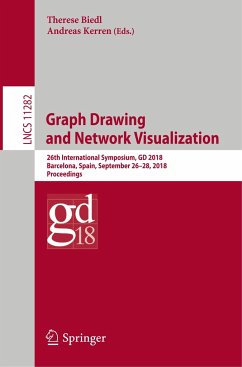
Core Data Analysis: Summarization, Correlation, and Visualization

PAYBACK Punkte
25 °P sammeln!
This text examines the goals of data analysis with respect to enhancing knowledge, and identifies data summarization and correlation analysis as the core issues. Data summarization, both quantitative and categorical, is treated within the encoder-decoder paradigm bringing forward a number of mathematically supported insights into the methods and relations between them. Two Chapters describe methods for categorical summarization: partitioning, divisive clustering and separate cluster finding and another explain the methods for quantitative summarization, Principal Component Analysis and PageRan...
This text examines the goals of data analysis with respect to enhancing knowledge, and identifies data summarization and correlation analysis as the core issues. Data summarization, both quantitative and categorical, is treated within the encoder-decoder paradigm bringing forward a number of mathematically supported insights into the methods and relations between them. Two Chapters describe methods for categorical summarization: partitioning, divisive clustering and separate cluster finding and another explain the methods for quantitative summarization, Principal Component Analysis and PageRank.
Features:
· An in-depth presentation of K-means partitioning including a corresponding Pythagorean decomposition of the data scatter.
· Advice regarding such issues as clustering of categorical and mixed scale data, similarity and network data, interpretation aids, anomalous clusters, the number of clusters, etc.
· Thorough attention to data-driven modelling including a number of mathematically stated relations between statistical and geometrical concepts including those between goodness-of-fit criteria for decision trees and data standardization, similarity and consensus clustering, modularity clustering and uniform partitioning.
New edition highlights:
· Inclusion of ranking issues such as Google PageRank, linear stratification and tied rankings median, consensus clustering, semi-average clustering, one-cluster clustering
· Restructured to make the logics more straightforward and sections self-contained
Core Data Analysis: Summarization, Correlation and Visualization is aimed at those who are eager to participate in developing the field as well as appealing to novices and practitioners.
Features:
· An in-depth presentation of K-means partitioning including a corresponding Pythagorean decomposition of the data scatter.
· Advice regarding such issues as clustering of categorical and mixed scale data, similarity and network data, interpretation aids, anomalous clusters, the number of clusters, etc.
· Thorough attention to data-driven modelling including a number of mathematically stated relations between statistical and geometrical concepts including those between goodness-of-fit criteria for decision trees and data standardization, similarity and consensus clustering, modularity clustering and uniform partitioning.
New edition highlights:
· Inclusion of ranking issues such as Google PageRank, linear stratification and tied rankings median, consensus clustering, semi-average clustering, one-cluster clustering
· Restructured to make the logics more straightforward and sections self-contained
Core Data Analysis: Summarization, Correlation and Visualization is aimed at those who are eager to participate in developing the field as well as appealing to novices and practitioners.














